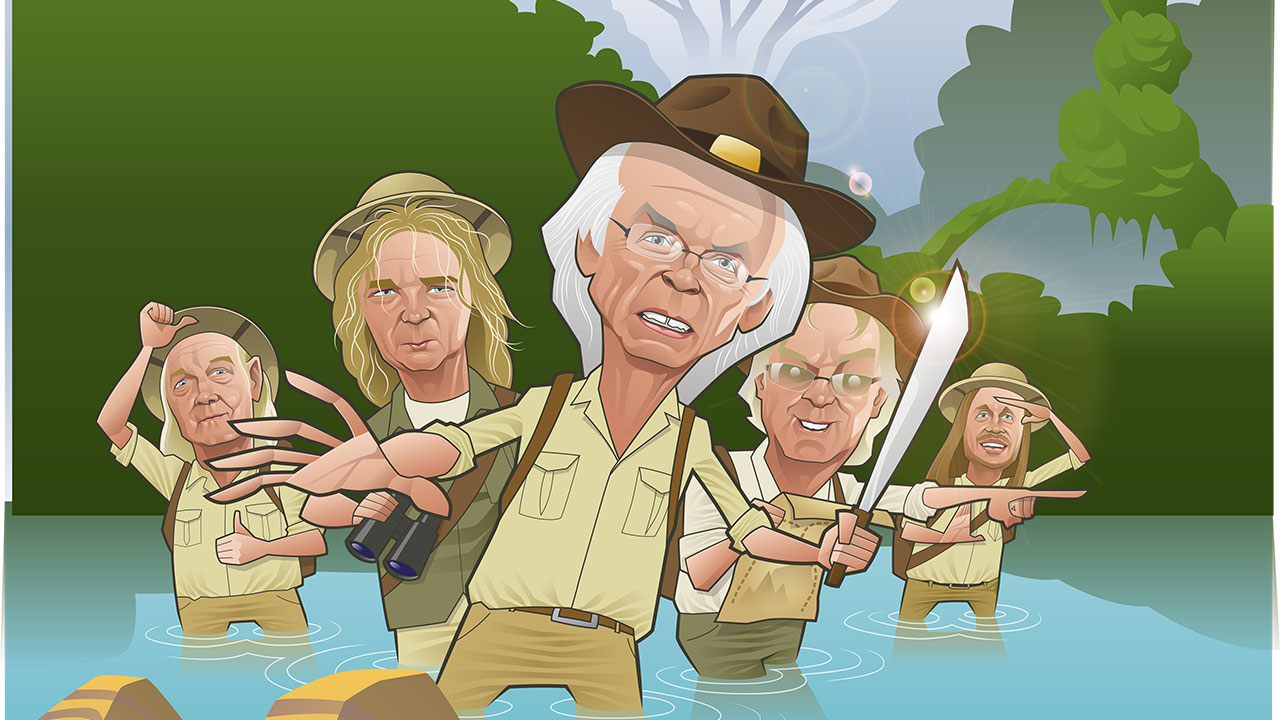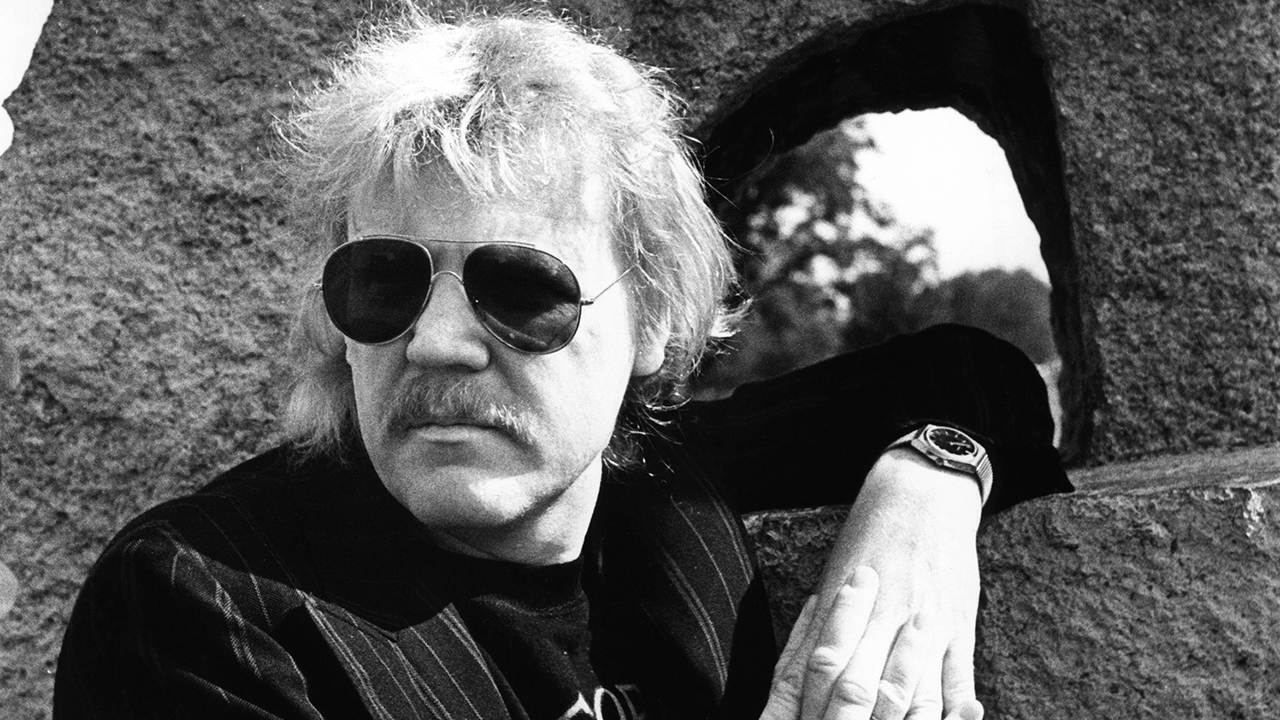You can trust Louder
It’s been a decade since Fly From Here soared to unexpected heights as Yes briefly reunited with Trevor Horn. And it’s seven years since their last studio album, Heaven & Earth, brought Jon Davison in on vocals and featured the late Chris Squire’s farewell. Their first of the 2020s – and their 22nd since they formed over half a century ago – was created in part in a very modern manner, with file sharing and online co-writes defying the barriers of lockdown. (Much water has passed under the bridge since Yes were decorating Morgan Studios as a farmyard with model cows and stacks of hay during the Tales From Topographic Oceans sessions.)
Produced by Steve Howe, this is the first Yes album where that power and responsibility has been given to one member since Trevor Rabin produced Talk in 1994. Whereas the normally hyperactive Roy Thomas Baker sounded restrained and muted on Heaven & Earth, Howe seems motivated, animated, keen to kick this one into life. It gets there more often than not, and while it’s not about to supplant any of the landmarks as your favourite Yes album, it’s a spirited attempt to roll back the years in search of thunder.
This line-up – Howe, Davison, Geoff Downes, Alan White and Billy Sherwood (striving manfully to fill Squire’s boots) – has been settled with the relay(er) baton since 2015. While in the parallel dimensions of Yesworld there will still be many censoriously sneering at the ensemble for not matching their own personal choice of team selection, there’s no denying that the five are in a content, creative place. Sketches for The Quest began in late 2019, with Howe and Davison driving, before Covid threw a spanner in all our works. Collaboration via the internet saved the momentum. Downes and Davison also wrote together, as did Davison and Sherwood. White was able to record in LA with Sherwood. Howe steered throughout. Downes has said that, as a fan of Tony Kaye, he used a lot of retro keyboard sounds, but The Quest doesn’t align itself with any one particular era of Yes. If it’s a little too smooth and clean for its own good in parts (especially on the ballads), the songs in general are much stronger than on Heaven & Earth and rather more blood pumps through its veins.
There’s a fair bit of pressure on The Ice Bridge, as the opening track. It stays steadfast and doesn’t crack. After an intro that leans uncomfortably close to Fanfare For The Common Man reimagined by Pearl & Dean, it hits its stride, Sherwood giving it ballast while Howe’s instantly recognisable flicks and tricks fly off like sparks. Davison’s themes are environmental; topical yet referencing the past and future. While he obviously still sounds like Jon Anderson – and is probably obliged to – he’s more confident than ever. And if you’re pining for Anderson’s brand of astral-gibberish lyrics, the deployment of phrases like ‘exponential ancient overdrive’ will float your spaceship. This scene-setter packs plenty into its seven minutes, with dazzling solos from Howe and Downes ripping across the final third. It’d be too rich to claim it’s as exhilarating as the climax of Going For The One, but it’s a swashbuckling statement, showing there’s juice left in the tank.
Three Howe-led compositions follow, and find a pleasing plateau on which to let the band demonstrate their wares and flair. Dare To Know skips and hops gently before an orchestra drives it up a dimension. It isn’t symphonic, but it is simpatico. The mid-tempo Minus The Man relies on Davison’s sweetness and Howe’s flecks of guitar paint for elevation, while Leave Well Alone at first perhaps feels closer to Asia, with its 80s AOR keyboard stabs, than what readers might think of as Yes. Before its eight minutes are run, it’s sourced some space for Howe to flourish in.
The Western Edge is spacey and full of sighs, by accident or design the most evocative of Anderson-era Yes. Davison’s Future Memories has a melancholy folk feel, Music To My Ears is slightly bland lighters-aloft filler, and Downes/Davison’s A Living Island is inspired by Barbados. Don’t expect Typically Tropical though: it’s a green-positive paean to coral. Oh, and the planet. Its ending stretches for some grandeur with which to bring the album home. Except! There are three further tracks on a bonus disc. These fail to add anything. Sleeping Sister Soul is a tad spindly, and Mystery Tour an unnecessary beginners’ guide to The Beatles. Howe’s Damaged World lilts along
for five minutes, barely registering. The first disc – the album proper – is where the good stuff lives.
And it is good stuff. Great? No. Yes at their most inspired, glorious level? No. But it’s
a healthy improvement on their last offering. On studio album 22, they’ve caught flashes of the old magic. The quest goes on.
Sign up below to get the latest from Prog, plus exclusive special offers, direct to your inbox!
Chris Roberts has written about music, films, and art for innumerable outlets. His new book The Velvet Underground is out April 4. He has also published books on Lou Reed, Elton John, the Gothic arts, Talk Talk, Kate Moss, Scarlett Johansson, Abba, Tom Jones and others. Among his interviewees over the years have been David Bowie, Iggy Pop, Patti Smith, Debbie Harry, Bryan Ferry, Al Green, Tom Waits & Lou Reed. Born in North Wales, he lives in London.


